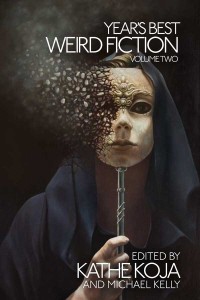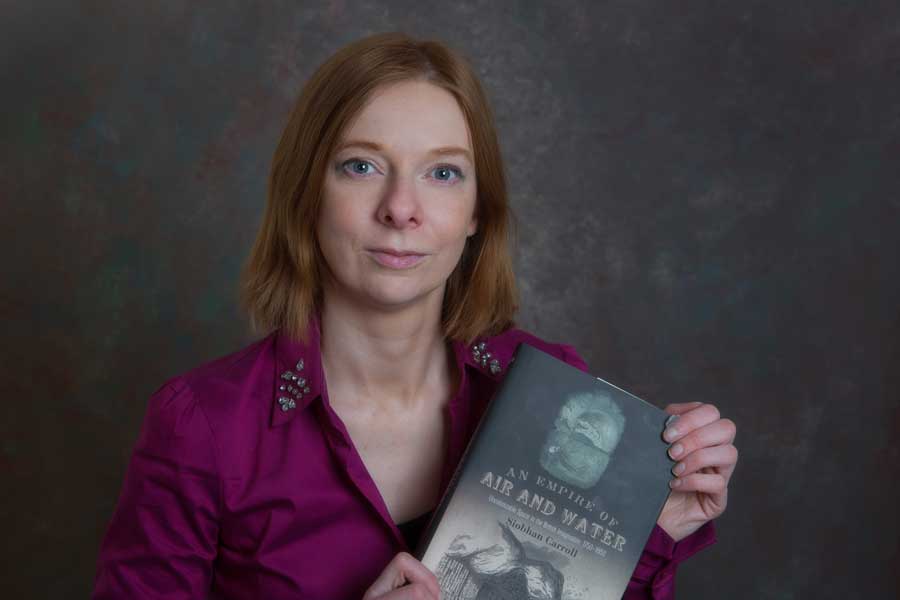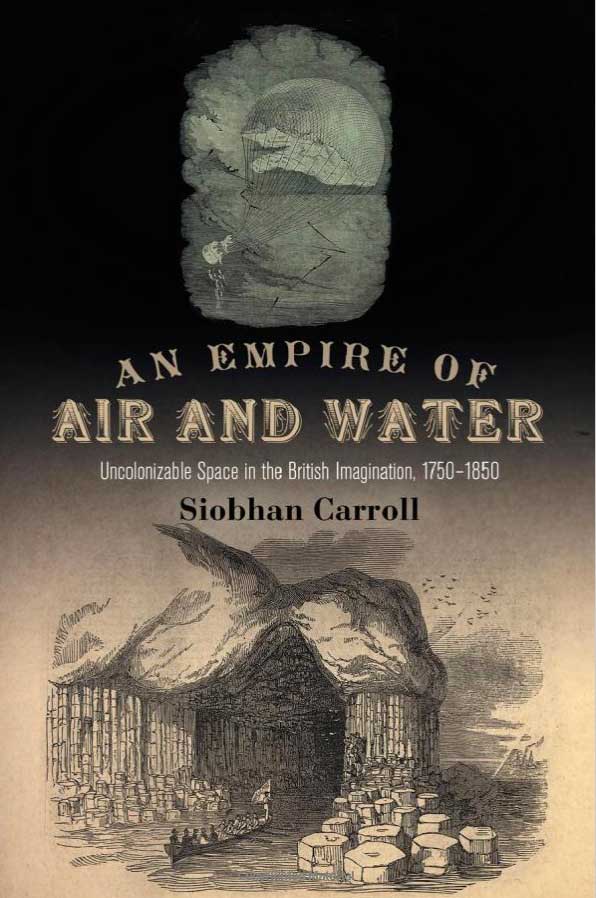As I said in my introduction to the previous interview I conducted, with Fran Wilde, I ran a small workshop a few years back called The Bridge. One of the other terrific participants in that workshop was author and professor Siobhan Carroll. Our interview follows:
- Tell me about your amazing UPenn nonfiction book?
AN EMPIRE OF AIR AND WATER is a pre-history of science fiction. It examines a crucial historical period from 1750-1850, during which Europeans were penetrating the Arctic, descending into caves, and using air balloons to fly into the atmosphere for the first time. Spaces that had been off-limits to humanity were now more accessible than ever. And just as we’d see with the 20th century space race, this development put new pressures on authors who were used to using these spaces as settings for fantastic tales.
In EMPIRE I examine the reactions of authors like Mary Shelley to this new age of exploration. I argue that writers like her and Samuel T. Coleridge pushed back against exploration in texts like Frankenstein and Rime of the Ancient Mariner, trying to preserve a space for the imagination in an increasingly mapped world. Given that fiction and poetry were being used to promote exploration by government officials, British authors like Shelley also found themselves taking stands on the expansion of the British Empire. Would it really be a good thing to have even the North Pole come under British dominion? What would it mean to have generations of British subjects born outside the British Isles, but indoctrinated with loyalty to ‘England’s green fields’ thanks to the poetry they read? Authors associated resistance to empire with these unusual geographies, and the tropes they created around caves, oceans, atmospheres and the poles carry forward into modern fiction.
- What are your favorite classes to teach at UDelaware?
I have to pick just one? I like all the classes I teach, but I particularly get a kick out of courses like “Fantasy From Tolkien to Rowling,” which culminates in students putting on a research symposium on fantasy fiction. I like to teach courses in which students get to engage with fiction and poetry via more angles than just the traditional academic essay.
- Talk to me a little about the Wendigo story that Ellen Datlow published in Fearful Symmetries and that’s being reprinted in The Year’s Best Weird Fiction, edited by Kathe Koja and Michael Kelly?
The wendigo story  grows out of my research on EMPIRE, so you might say it’s a fictional footnote to some of my book’s arguments. It’s about the stories we tell about Arctic space – about the Franklin expedition, climate change, and the fate of the poles – and the way that, if we’re not careful, such stories can dictate our futures. It’s a horror story, so it’s not very optimistic.
grows out of my research on EMPIRE, so you might say it’s a fictional footnote to some of my book’s arguments. It’s about the stories we tell about Arctic space – about the Franklin expedition, climate change, and the fate of the poles – and the way that, if we’re not careful, such stories can dictate our futures. It’s a horror story, so it’s not very optimistic.
- What are your favorite SFnal topics?
Wow, there are so many. Right now I’m very interested in the new representations of ecology and humanity that we’re seeing in works like Vandermeer’s Annihilation and Paulo Bacigalupi’s The Windup Girl. I also really appreciate what texts like Leckie’s Ancillary Justice are doing with identity. In my own fiction I’m still very much engaged with the way individuals are shaped by their culture, but my definitions of what “individual” and what “culture” mean are shifting.
- Now that you’re five (or more) years out from your Clarion experience, what do you find is the thing that inspires you most about that time?
Probably the people I met at Clarion. <Waves to the class of 2009!> Over the course of five years I’ve got to see so many people develop as writers—not just in terms of their skill levels, but also in terms of their authorial identity and voice. We had so many talented people in my class—people like Rochita Loenen Ruiz, D. Elizabeth Wasden, J.M. Sidorva, Randy Henderson, and so on—some of whom you’ve heard from already and some of whom you’ll be hearing about over the next ten years. It’s a privilege to know them, and I continue to learn so much from their writing. My advice to any aspiring SF writer is, if you can go to Clarion, do!
- When are you going to finish your novel, Siobhan?
<coughcoughcoughcough…soon?>
- Riiiight. Let’s talk about other works then. Some of your fiction is inspired by/spun off of classics—Jane Eyre comes to mind for one. This is a trait shared with other excellent writers, like John Kessel. Do you find yourself often imagining “further adventures of…” tales in literature and exploring those possibilities?
Well, first, thanks for the flattering comparison to John Kessel. He was my first week Clarion instructor and I think he’s an amazing writer. I only wish I could write in his league!
As for classics… I think I approach the “reworking of a classic story” from a different angle than most people. As a literary critic, I’m less interested in the “further adventures” of Jane Eyre than getting at what the story of Jane Eyre meant to us then, and what it means to us now.
So many powerful older stories are screened off from us by their language or reputation: people have difficulty connecting with Dickens now because they find his language difficult and because they believe they’re supposed to worship at the shrine of BLEAK HOUSE: The Very Important Book. I’m interested in fiction that solves that problem. In the case of Dickens, that means I’d rather write The Wire than The Further Adventures of Inspector Bucket. And I’d rather write something like Longbourn, which retells Pride & Prejudice with an eye to 21st century politics, than yet another P&P sequel.
That said, I think something very interesting happens when SF retells classic literature. Science fiction & fantasy has spent decades being roped off from “real literature,” so to take on the canon in an SF story is inherently a political act. But we’re now reaching a moment in which academia and the literary canon is increasingly open to SF. People like me get to teach it in English classes at university! So when it comes to retellings, I’d like to see more SF moving past the culture wars and retelling some of its own classics. So we have issues with the some of the racial and gender politics of the Golden Age? Why not address *that* in a retelling of Asimov’s “Nightfall”? Part of seeing SF as “good literature” is seeing our canon as open to reinterpretation. We have our literary history too.
Thanks, Siobhan.




